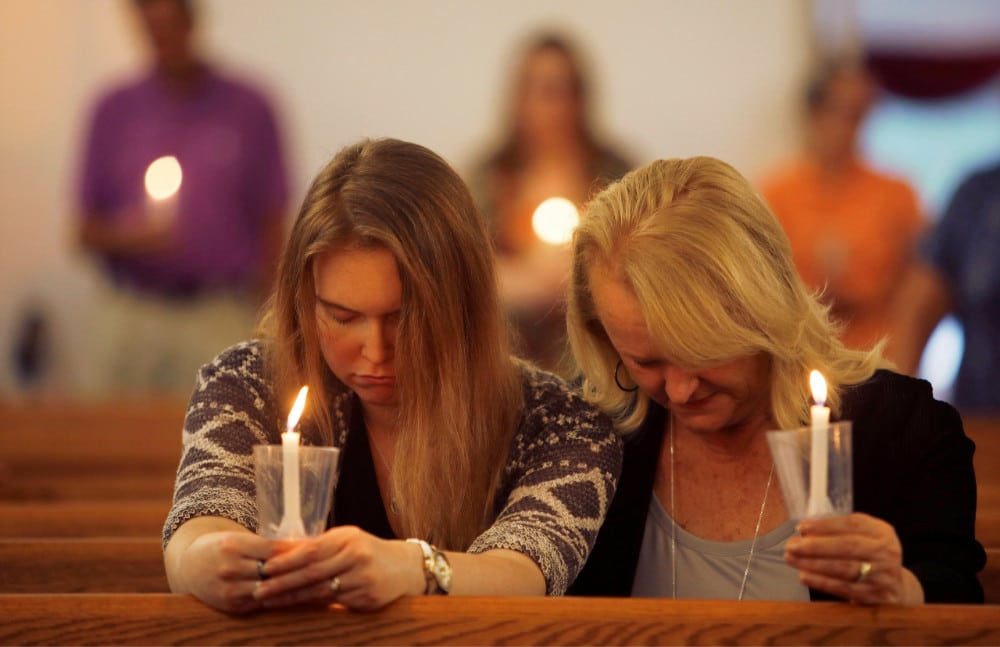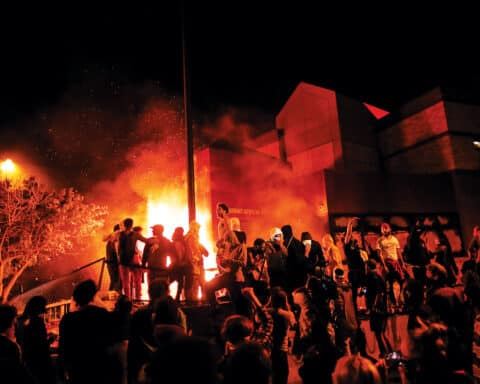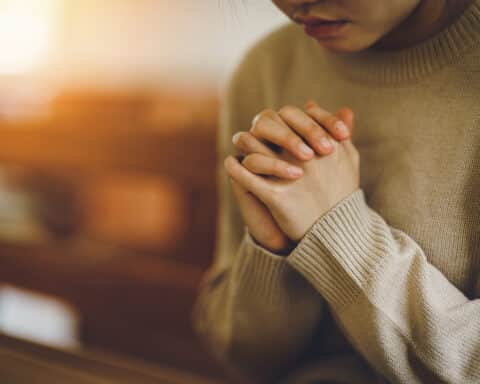In her autobiography “Story of a Soul,” St. Thérèse of Lisieux writes that “prayer is an aspiration of the heart, it is a simple glance directed to heaven, it is a cry of gratitude and love in the midst of trial as well as joy.”
But for those who don’t pray, or don’t understand it, or simply don’t acknowledge the presence of the God who created them, prayer must seem like it has all of the benefits of talking to one’s imaginary friend — a sweet but hollow sentiment.
For Christians, however, “prayer is the breath of faith,” as Pope Francis said in 2020 as he began a series of catechetical talks on prayer. His predecessor, Pope Benedict XVI, said during his own catechesis on prayer in 2012 that Christians “must be able to ponder the events of our daily life in prayer in order to seek their deep meaning. … [May we] learn to see that God is present in our life, present also and especially in difficult moments, and that all things — even those that are incomprehensible — are part of a superior plan of love in which the final victory over evil, over sin and over death is truly that of goodness, of grace, of life and of God.”
As we wrestle with the most recent difficult and incomprehensible moments — namely, the shooting at a supermarket in Buffalo, New York, that killed 10 people and the attack on an elementary school in Uvalde, Texas, where 19 students and two adults were shot and killed — it’s important to be reminded of just how foundational prayer is to our lives as Christians. Because while it might be a stretch to say that prayer itself is being attacked, it is certainly being discounted in our wider culture — one that grows more secular by the day.
In the not-so-distant past, stating publicly that the victims of such tragedies would be included in one’s thoughts and prayers was seen as an act of love. For anyone who was shocked, saddened or outraged by the recent shootings, it was nearly impossible not to think about those who so suddenly and violently lost their lives — in Buffalo, the majority of whom were Black, and in Texas, the young schoolchildren who were days away from summer break.
Now, though, “thoughts and prayers” is not seen as an act of charity. In fact, the opposite is true. The phrase is mocked as a symbol of incompassion and inaction. Immediately following the school shooting in Uvalde, media outlets made clear just how unwelcome “thoughts and prayers” has become, as their headlines read: “Spare us your thoughts and prayers”; “Thoughts and prayers are not enough”; “Don’t allow lawmakers to ‘thoughts-and-prayers’ away Uvalde massacre”; and “Republicans send their thoughts and prayers after Texas school shooting.”
Part of the rise in hostility, as mentioned earlier, is the growing secularization of our culture and country. But this is not the sole reason, as many who take offense at the phrase “thoughts and prayers” are surely Christians themselves. Perhaps, then, the more prevalent reason for disgust is a genuine frustration — and anger — over what many perceive to be a callous and continued inaction by lawmakers. It isn’t the thoughts or the prayers themselves that are upsetting, but that those seem to be the only response to the growing pile of bodies gunned down across our country.
We ought to remember that just as keeping the victims at the forefront of our minds and offering prayers to God on their behalf are acts of good, so, too, is the insistence that something concrete must be attempted to prevent future tragedies. As the Letter of James reminds us — and something we need to remind the world — prayer and action aren’t mutually exclusive; instead, one flows from the other. “What good is it, my brothers, if someone says he has faith but does not have works? … If a brother or sister has nothing to wear and has no food for the day, and one of you says to them, ‘Go in peace, keep warm, and eat well,’ but you do not give them the necessities of the body, what good is it? So also faith of itself, if it does not have works, is dead” (2:14-17).
In an Angelus address in 2013, Pope Francis made this Scripture passage clear, saying: “In our Christian life … may prayer and action always be deeply united. A prayer that does not lead you to practical action for your brother — the poor, the sick, those in need of help, a brother in difficulty — is a sterile and incomplete prayer.”
Only when we as a society — Christians and non-Christians alike — understand the true meaning of prayer, and the power it still holds today, will we be able to unite as brothers and sisters with a common goal: to end the plague of senseless gun violence.
Our Sunday Visitor Editorial Board: Gretchen R. Crowe, Scott P. Richert, Scott Warden, York Young





